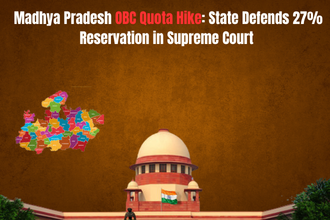In a notable conclusion to a controversial case involving alleged communal slurs and disparaging advertisements, the Delhi High Court on May 9, 2025, closed the civil suit filed by Hamdard National Foundation against Baba Ramdev and Patanjali Foods Limited. The suit was based on videos in which Ramdev allegedly used the term “sharbat jihad” while promoting his product Gulab Sharbat and targeting Hamdard’s popular beverage, Rooh Afza. The closure of the case came after Ramdev and Patanjali filed affidavits undertaking not to make such statements in the future and confirmed the removal of all objectionable content.
Background of the Controversy
The dispute began when Baba Ramdev, during a promotional video released on April 3, 2025, made controversial statements targeting Rooh Afza, a product by Hamdard Laboratories. Ramdev alleged that the profits from Rooh Afza were being used for building masjids and madrasas. Furthermore, he invoked the phrase “sharbat jihad,” an inflammatory term suggesting a communal motive behind the beverage’s marketing.
The statements, which quickly drew criticism from various quarters, prompted Hamdard to approach the Delhi High Court. The foundation filed a suit alleging defamation, disparagement, and communal incitement, and sought immediate relief from the court to restrain Patanjali from continuing its campaign against Rooh Afza.
Court’s Initial Reaction and Observations
When the matter first came before Justice Amit Bansal on April 22, the Court reacted strongly to the content of the video. Describing the remarks as “indefensible” and deeply disturbing, Justice Bansal observed:
“I could not believe my eyes and ears when I saw this .”
The Court noted that the video had the potential to stir communal tensions and could not be defended under the guise of comparative advertising or freedom of speech. The judge warned that a strong judicial order would follow if corrective steps were not taken immediately.
In response, counsel for Baba Ramdev and Patanjali informed the Court that all such videos and printed advertisements would be taken down from public platforms. The Court also directed Ramdev to file a sworn affidavit affirming that he would refrain from making similar remarks in the future.
Affidavits Filed, Case Closed
On May 9, the Delhi High Court recorded that affidavits had been filed by Ramdev and Patanjali, in which they undertook not to issue any further statements or produce content with communal or defamatory undertones aimed at competitor brands.
Justice Bansal noted that since the objectionable content had been taken down and the plaintiff (Hamdard) was not pressing for further relief, the court was closing the matter. The order read:
“Pursuant to the order passed in the suit, affidavits have been filed on behalf of the defendants binding them to the averments made in it. Counsel for the plaintiff does not press for more reliefs. The present suit is decreed.”
Alleged Breach and Contempt Warning
Interestingly, the matter almost took a different turn when, on May 1, the Court was informed that Baba Ramdev had once again released a video targeting Hamdard, in apparent violation of his earlier assurance.
Justice Bansal expressed displeasure and warned of initiating contempt proceedings. The Court stated that it would summon Ramdev unless the fresh content was promptly removed. Following this warning, Ramdev’s legal team agreed to take down all new objectionable content from social media within 24 hours.
Legal Representation
The case featured some of the top names from the Indian legal fraternity. Senior Advocates AS Chandhiok and Sandeep Sethi led the team for Hamdard, along with Pravin Anand, Dhruv Anand, and others. Senior Advocate Rajiv Nayar represented Ramdev and Patanjali.
Their arguments helped shape the court’s interim and final directions, focusing on issues of commercial speech, comparative advertising, and communal harmony.
Legal and Social Implications
The case brings to the forefront important legal issues concerning freedom of expression, comparative advertising, and the use of communal language in commercial speech. While businesses are allowed to promote their products by comparing them with competitors, courts have consistently held that such promotions must not cross the line into defamation or hate speech.
Justice Bansal’s stern reaction underscores the judiciary’s zero-tolerance policy toward communal incitement, especially when propagated by influential public figures. The invocation of terms like “sharbat jihad” not only maligns a product but also fuels unnecessary communal narratives that could disturb public order.
The case also illustrates the power of interim reliefs in civil suits, such as takedown orders and mandatory affidavits, in preventing further harm pending a full trial.
Conclusion
The closure of the suit against Baba Ramdev by the Delhi High Court offers a timely reminder to influential figures and corporations that the freedom of speech does not extend to communal vilification. While Ramdev and Patanjali have managed to avoid contempt proceedings by complying with court orders, the case serves as a precedent for regulating speech in commercial advertisements and upholding communal harmony.
As India continues to witness increasing scrutiny of public speech—especially that of spiritual leaders and corporate heads—this case could guide future rulings where brand competition intersects with social responsibility.


